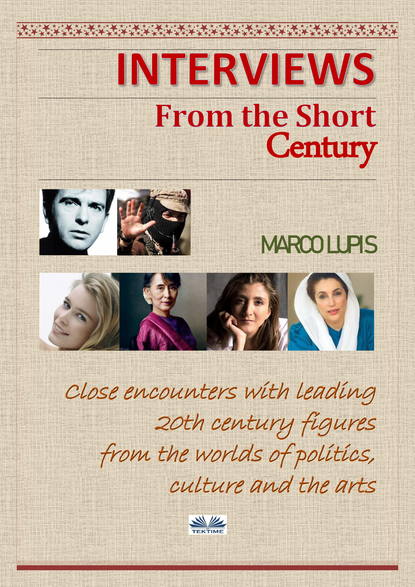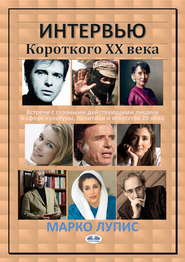По всем вопросам обращайтесь на: info@litportal.ru
(©) 2003-2024.
✖
Interviews From The Short Century
Настройки чтения
Размер шрифта
Высота строк
Поля
What do you expect from the army then?
I donât expect anything. Just that they listen to their conscience.
8
Mireya GarcÃa
To forgive is impossible
During an emergency meeting of the National Security Council convened by President Frei at the Palacio de La Moneda, tensions in Chile, which were already running high from the Pinochet ruling in London, were further fuelled by some breaking news: another illegal detention centre dating from the military dictatorship had been discovered following revelations from Monsignor González, the bishop of Punta Arenas, where the remains of hundreds of desaparecidos had already been identified.
The detention centre was located in the extreme north of Chile, about seventy miles from Arica, in a desert region where its existence had long been suspected. It had come to light that the local judiciary had been secretly investigating the centre for several weeks. Despite the shroud of secrecy put around the case by local judge Juan Cristóbal Mera, comments by the local governor, Fernando Nuñez, revealed that the mass graves were located by the coast in the Camarones area. Very near to the city's old burial ground.
â It must be stressed,â Governor Nuñez had told reporters, âthat the geographical coordinates are not exact, but we know that the judge has already verified the existence of at least two graves. However, we will ask for the judge Juan Guzmán Tapia to be present if and when the remains of the desaparecidos are exhumed.â
The clues that led to this detention centre were provided by Bishop González, who said he had received the information âunder the Seal of Confessionâ. It was not yet clear how many detention centres were concerned.
Against this background, and in order to discover more about what happened to the Chilean desaparecidos , I decided to interview the leader of the relativesâ association, the AFDD.
*****
Imprisoned, tortured, exiled. Mireya Garcia didnât just lose her adolescence with Pinochetâs coup dâétat. Her brother has been missing for more than a quarter of a century. Today, Mireya is vice-chair of the Association of Families of the Disappeared and Detained (AFDD), and she has fought continuously for the truth.
These mothers and grandmothers - each carrying their own burden of pain, each with a photo of a disappeared son, brother, husband or grandson - have been meeting every day for years in a blue apartment block near to the centre of Santiago. The walls of the courtyard are covered in faded photos of the desaparecidos , each accompanied by the same question: Dónde están? [Where are they?] Every so often, the wall of photos and the same unanswered question over and over is interrupted by a rose or some other flower.
What do you remember about those years, about the coup dâétat?
It's all a bit vague. I was at home and I just remember hearing military music on the radio. Then loads of men in uniforms appeared on the streets. I wouldn't realise until later that this was a dark day in the history of my country.
How old would you have been?
I was in the Young Socialists in Concepción, a small city about sixty miles south of Santiago. I wanted to study, get married, have a family...but then everything changed. Quickly. Too quickly. I can talk about it fairly calmly now, but for years I couldnât bring myself to dredge it all up again. Not even with my family.
They came for us one night. Only my brother and I were in the house. I was arrested (if you can call it that) and then tortured. If Iâm honest, I find it hard to speak about how they humiliated me even now.
I never saw my brother again. When I later managed to escape to Mexico with my family, I realised that Vicente had vanished for good. It was gut-wrenching knowing that he might still be alive somewhere and I was thousands of miles away, unable to return to Chile so I could look for him, help him.
Is that when you decided to set up the AFDD?
Yes. There were so many of us who had been exiled to Mexico and had relatives who had been âdisappearedâ by the Pinochet regime. We held demonstrations in the street. It might not have scared such a brutal dictatorship, but at least people knew who we were. Knew what had happened.
When did you finally return to Chile?
After fifteen years. And I still feel like an outcast today. An exile in my own country.
What have you managed to find out about what happened to your brother?
Very little. Just that he was taken to a secret detention centre called Cuartel Borgoño, where he was tortured. The place doesnât exist anymore. They bulldozered everything to get rid of any trace, any evidence.
Do you think the blame lies exclusively with Pinochet?
No. And thatâs the crazy thing about Chile. There are still cases open against at least thirty individuals - generals, colonels, politicians and mere foot soldiers of death - who were responsible for murder, torture and other forms of brutality. But the absurd thing about this country is that everyone knows that at least three thousand people were disappeared, and yet the courts have only verified eleven cases. It's like everyone knows but chooses to look the other way.
Some people say that, rather than being a universal concept, justice is relative to the period in history and the conditions of a particular country. Is that something you agree with?
No. I believe that dignity, respect and justice are universal concepts. Otherwise, why would countries sign declarations on human rights and conventions against torture?
How did you feel when Pinochet was arrested?
It was a real see-saw of hope and despair. What happened in London showed that Chile is still a deeply divided nation. A country where the military still wields considerable power that can hold sway over politicians and institutions. I was also pretty shocked. Over the years, Pinochet had built himself this shield of impunity with an almost maniacal obsession for detail. He had even changed the Constitution so that no one could touch him. If he's not tried abroad, Iâm absolutely certain that Pinochet will never be brought before a Chilean court. It just won't happen.
What do you understand by forgiveness?
I think itâs an absolutely personal matter. Everyone will have different opinions. I cannot forgive the people who tortured my brother. Some people might think Iâm being vindictive, but itâs not like that. Iâm not looking for revenge;
I just want the truth.
Вы ознакомились с фрагментом книги.
Приобретайте полный текст книги у нашего партнера:
Приобретайте полный текст книги у нашего партнера:






